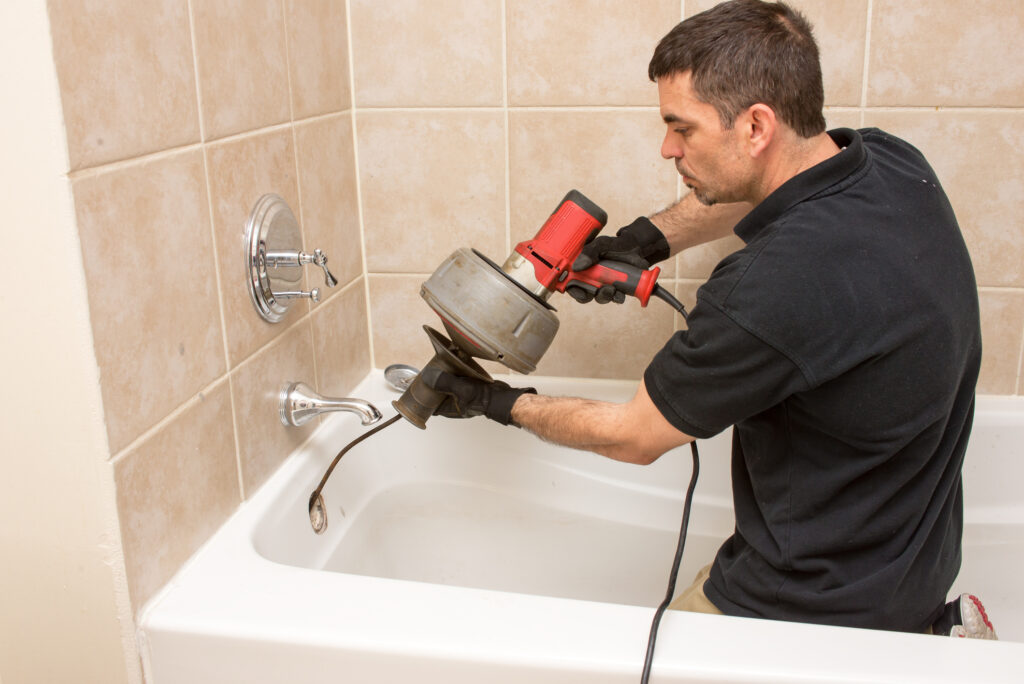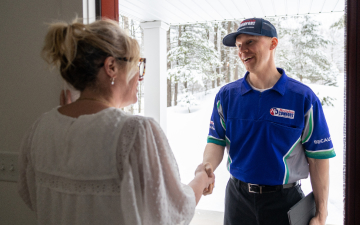For reliable, energy-efficient comfort year-round, a geothermal heat pump is a smart choice. Geothermal HVAC technology is powered by the heat below the Earth’s surface.
To cool your home, it absorbs the heat inside and releases it outside. To heat your home, it absorbs heat from beneath the ground and pumps it into your house. It works through a network of piping, or loops, buried beneath the ground or placed in water that has access to a consistent heat source.
In this blog post, discover the pros and cons of geothermal heat pumps and why they’re becoming increasingly popular in Indiana homes.

Is a Geothermal Heat Pump Right for You?
Geothermal heat pumps are an energy-efficient option for heating and cooling your home, but several factors must be considered before deciding if they’re right for your situation.
Pros of Geothermal Heat Pumps
- Energy-efficient: Geothermal heat pumps can be up to 600% more energy-efficient than traditional heating systems. They use 25% to 50% less electricity than conventional systems
- Cost savings: They lower your operating costs due to reduced energy consumption and are a potential tax incentive with rebates for installing a renewable energy system.
- Environmental impact: They create significantly less greenhouse gas emissions than fossil fuel systems by reducing your dependency on non-renewable energy sources.
- Reliability and longevity: Geothermal systems have a lengthy lifespan, often exceeding 25 years for indoor components and 50 years for the ground loop. They offer consistent and reliable performance in any climate or weather condition, even in subzero Indiana winter lows.
- Comfort and quiet operation: They provide even heating and cooling throughout your home without the fluctuations common in traditional systems and operate quietly to reduce noise pollution in your home.
- Versatility: Geothermal systems can do more than simply heating and cooling your home. They can also provide hot water, radiant floor heating, and even melting snow on driveways and walkways.
Cons of Geothermal Heat Pumps
- Initial cost: The upfront cost of installing a geothermal heat pump can be relatively high. This includes the cost of drilling or digging, as well as the cost of the equipment itself.
- Installation: Proper installation requires expertise and specific equipment. It’s not a DIY project, and finding qualified installers can sometimes be difficult.
- Disruption: Installing geothermal heat pumps can be disruptive, especially if you must drill deep wells or dig up large areas. This may not be an ideal solution in urban settings or areas with limited space.
- Geographical limitations: Not every area is suitable for a geothermal heat pump. Its effectiveness can vary depending on the area’s geographical conditions, including soil type and the availability of groundwater.
- Maintenance: Geothermal systems usually require fewer maintenance requirements than traditional HVAC systems; however, they do require periodic checks to ensure everything is functioning properly, especially the underground components.
Call Reliable Comfort for Geothermal Heat Pump Installation
Reliable Comfort has over 20 years of experience in heating and cooling. Our wide knowledge base allows us to service all HVAC brands and offer a 100% satisfaction guarantee. We’re family-operated and offer coupons and specials to ensure you always get the best deal possible.
If you live in southern Indiana and want to upgrade your property value with a geothermal heat pump, contact Reliable Comfort today.






